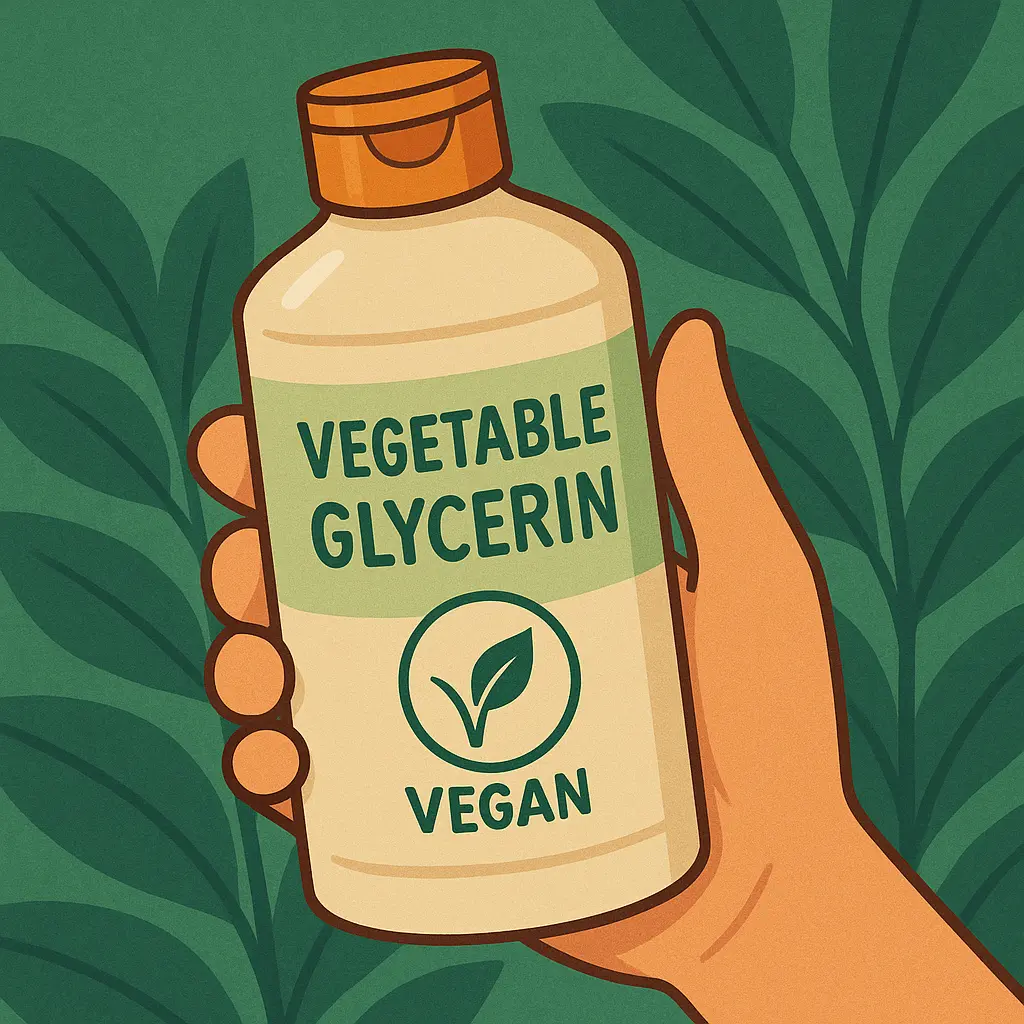Is Glycerin Vegan? Understanding Its Origins and Label Identification
Discover whether glycerin is vegan by examining its sources, both plant and animal. Learn how to identify vegan-friendly glycerin on labels effectively.

Glycerin: What Is It?
Glycerin, also known as glycerol, is a versatile compound found in numerous personal care products, pharmaceuticals, and food items. It is valued for its moisturizing properties and ability to maintain the consistency of formulations.
This compound is a clear, odorless liquid that is sweet-tasting and non-toxic. Due to its hygroscopic nature, glycerin is capable of drawing moisture into the skin, making it a staple in cosmetics and lotions.
Glycerin is often discussed in vegan circles due to its potential animal origin, sparking debates about its inclusion in vegan products. Understanding where glycerin comes from is essential for those following a vegan lifestyle.
The primary sources of glycerin include both plant and animal fats, as well as some synthetic origins. This variation in sources makes it crucial to identify the type of glycerin used in products to ensure they align with vegan principles.
Sources of Glycerin: Plants vs. Animals
Glycerin can be derived from several sources, affecting its suitability for vegans. Let's explore these origins to understand the differences.
Plant-based glycerin is typically produced from vegetable oils, such as soy, palm, or coconut oil. This process involves the hydrolysis of fats and oils, followed by further purification to yield glycerin.
- Animal-derived glycerin is obtained through the rendering of animal fats, often from tallow.
- Synthetic glycerin is produced through chemical processes, offering a vegan-friendly option if plant-based glycerin is unavailable.
- Plant-based glycerin, however, remains the most preferred option for vegans due to its natural and sustainable origin.
For consumers, identifying the source of glycerin is vital. Products with plant-based glycerin are often labeled as 'vegetable glycerin' to distinguish them from animal-derived glycerin.
Some brands, such as NOW Solutions and Heritage Store, explicitly state the plant-based origin of their glycerin, making it easier for vegan consumers to make informed choices.
Reading Labels: Identifying Vegan Glycerin
Understanding product labels is key to identifying vegan glycerin. Here's how you can decipher labels effectively.
Check for terms like 'vegetable glycerin' or 'plant-based glycerin'. These indicate that the glycerin is derived from plants rather than animals. However, the absence of such terms does not automatically mean the glycerin is animal-derived.
Look for vegan certification logos which often accompany plant-based glycerin products, providing assurance of their vegan status.
Contacting manufacturers directly is another way to verify the source of glycerin if the label does not provide enough information. Many companies are transparent about their sourcing practices when asked.
When in doubt, consider referencing trusted resources or databases that list vegan-friendly brands and products, ensuring you can make informed decisions about your purchases.

Brands and Products: Vegan Glycerin Examples
Several brands prioritize vegan sourcing for their glycerin, catering to conscious consumers looking for ethical choices.
Notable brands include NOW Solutions, which offers vegetable glycerin certified as vegan and cruelty-free. Another brand, Aura Cacia, ensures its glycerin is derived from non-GMO vegetable sources.
Many skincare products, such as moisturizers and cleansers, now feature vegan glycerin. These products often highlight their vegan credentials and transparent ingredient sourcing on their packaging.
For those interested in food products, some candies and baked goods specify the use of plant-based glycerin, catering to vegans and those with dietary restrictions.
Conclusion
In conclusion, glycerin can be either vegan or non-vegan, depending on its source. Plant-based glycerin is widely available and easily identifiable, making it a preferred choice for vegans.
By understanding how to read labels and knowing which brands prioritize vegan glycerin, you can make informed choices that align with your ethical and dietary preferences. Stay informed and choose products that support a cruelty-free lifestyle.


